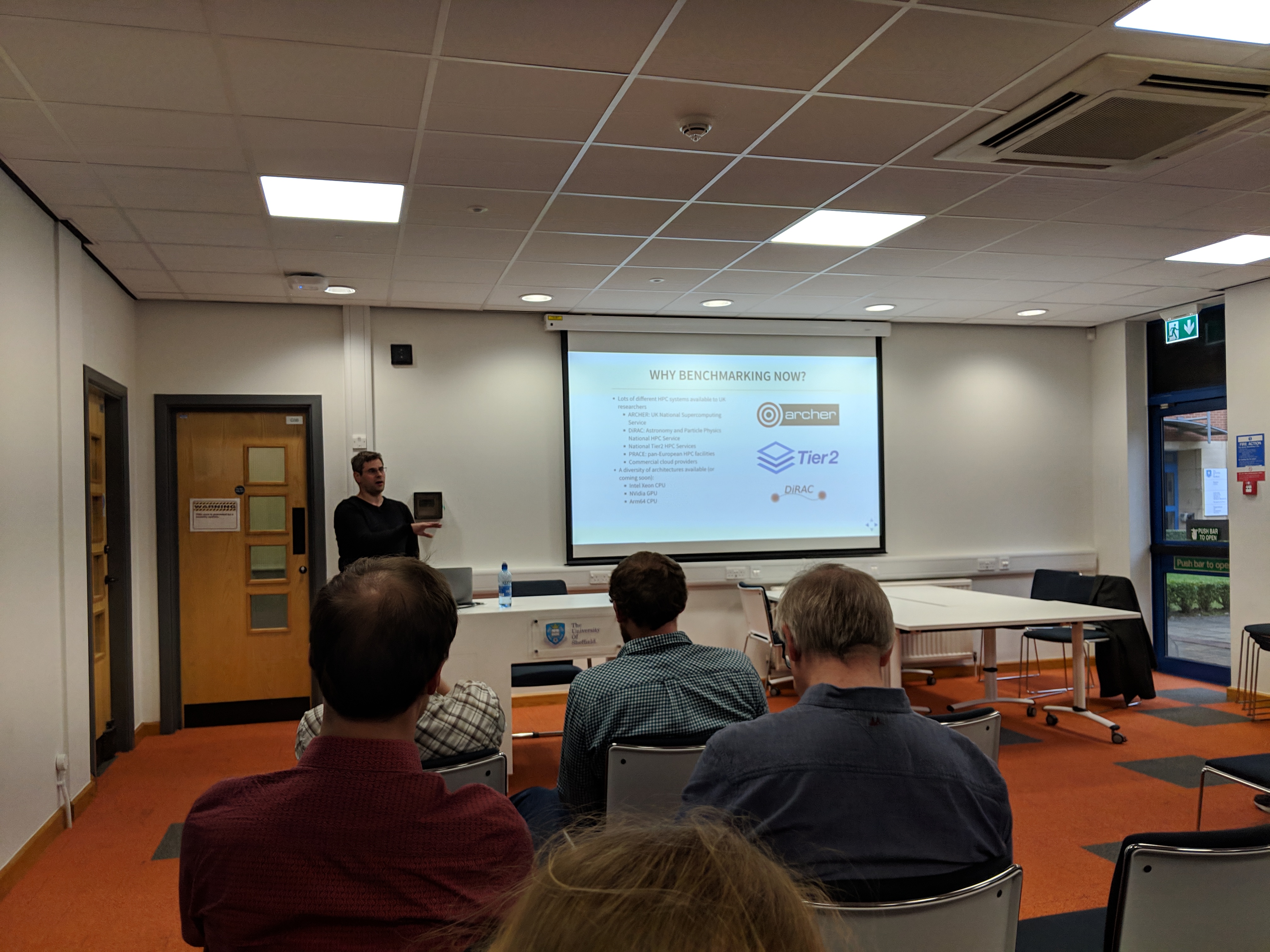All of our events may be recorded and shared via the University of Sheffield Kaltura platform so those who cannot attend may still benefit. We will consider your attendance implicit consent to this.
Abstract: The recent investments in national HPC services in the UK (for example the national Tier2 HPC services and DiRAC 2.5x) and the offerings from public cloud providers have led to a wider range of advanced computing architectures available to UK-based researchers. We have undertaken a comparative benchmarking exercise across these different services to help improve our understanding of the performance characteristics of these platforms and help researchers choose the best services for different stages of their research workflows. In this seminar we will present results comparing the performance of different architectures for traditional HPC applications (e.g. CFD, periodic electronic structure) and synthetic benchmarks (for assessing I/O and interconnect performance limits). We will also describe how we have used an open research model where all the results and analysis methodologies are publicly available at all times. We will comment on the ease (or not) of compiling applications on the different platforms in a performant way, assess the strengths and weakness of architectures for different workloads, and demonstrate the benefits of working in an open way
Benchmarking repository: https://github.com/hpc-uk/archer-benchmarks
Bio: Andy works for EPCC at the University of Edinburgh and has a particular focus on helping users get the best from the national HPC services around the UK. Much of his recent work has focussed on achieving this through an open benchmarking exercise comparing performance across different HPC systems and different applications and by developing HPC Carpentry training to provide researchers with the tools they need to use advanced computing in their research.

For queries relating to collaborating with the RSE team on projects: rse@sheffield.ac.uk
Information and access to Bede.
Join our mailing list so as to be notified when we advertise talks and workshops by subscribing to this Google Group.
Queries regarding free research computing support/guidance should be raised via our Code clinic or directed to the University IT helpdesk.
List of archived pages: Archive.